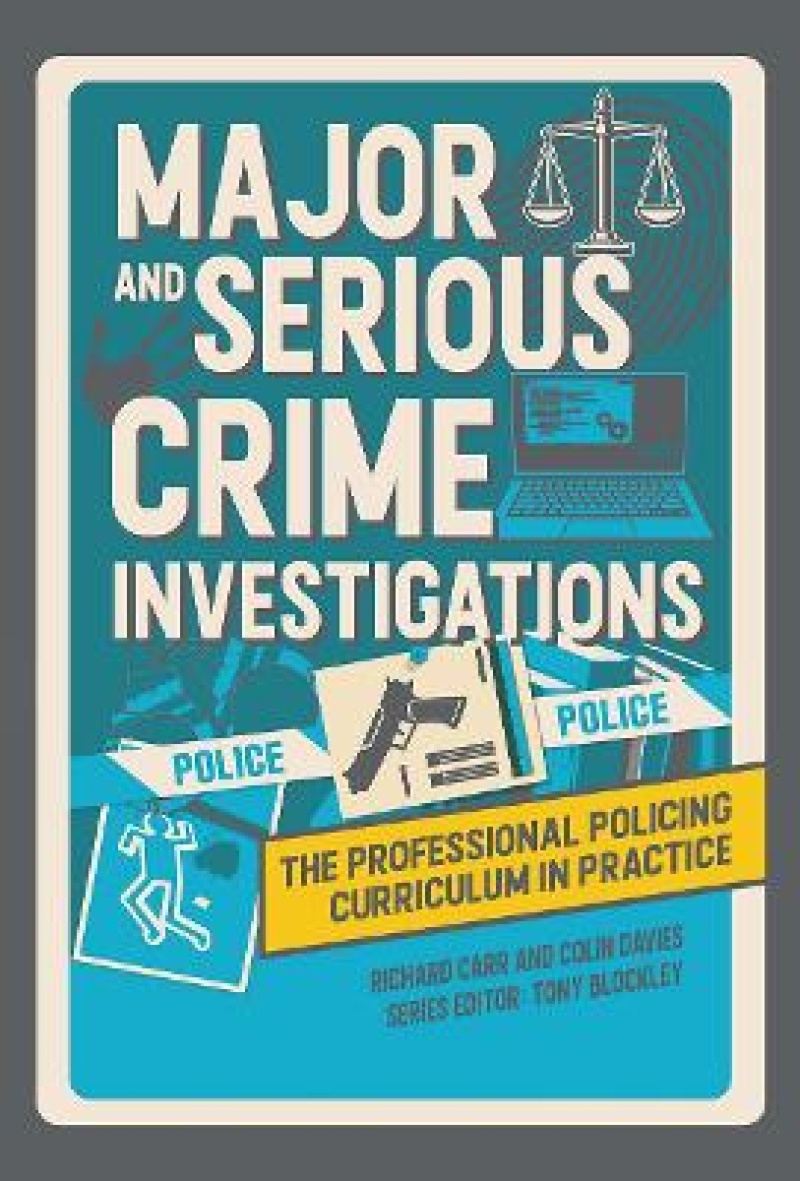This text explores the concept of major and serious crime investigations as it takes the reader through the fundamental elements of investigative theory and practice that are relevant to this area of criminality.
Unlike other texts that concentrate on either bespoke areas of criminality such as homicide, terrorism or tends in concepts such as county lines, this book recognises that the reader will be new to investigative study with little practitioner experience to anchor their learning. By using the latest evidence-based policing knowledge and critical thinking, it explores the concepts of major and serious crime, detailing key areas of legislation and how investigative strategies and decision making can influence successful outcomes. Other topics examined in this text is the key areas of risk for major and serious crime investigations, the impact on investigators, the concept of disclosure, investigative interviewing and how civil orders, designed to tackle this type of criminality can provide a successful alternative to prosecution.
Both students and practitioners can find this book useful with this book's contemporary approach of using case studies and contemporary investigative examples relevant to the topic. This book brings together academic theory and operational understanding of major and serious crime that provides learners with an easy to follow guide that they can keep returning to throughout their career.
Provides essential reading in the field of major and serious crime investigation, providing those new to investigation a strong foundation from which to build and those with experience the opportunity to develop their knowledge in the field.
Chapter 1: Introduction to major and serious crime investigations Chapter 2: Principles of major and serious crime investigations Chapter 3: Management of major and serious crime. Chapter 4: Roles and responsibilities of the Crown Prosecution Service. Chapter 5: Disclosure Chapter 6; Digital material Chapter 7: Covert approaches to the investigation of major and serious crime Chapter 8: Investigative interviewing Chapter 9: The use of civil orders in major and serious crime
Produktdetaljer
Biografisk notat
Richard Carr is a senior lecturer in policing and investigation at Liverpool John Moores University with more than 30 years of experience in policing. He has been the senior investigating officer on cases involving homicide, gun and gang criminality, serious sexual offending, human trafficking, modern slavery and police corruption, which has prepared him to lecture on these topics and deliver investigative training within a law enforcement environment.
Colin Davies OBE is a lecturer in policing at Liverpool John Moores Univesity with more than 25 years’ experience working for the Crown Prosecution Service. He has a detailed understanding of the challenges involved in investigating and prosecuting major and serious crime cases and has prosecuted many serious crime cases including those involving organised crime groups, homicides and international dimensions.
Tony Blockley has served within policing for over 30 years, gaining extensive knowledge and understanding of policing organisation and practice. On retirement he had attained the rank of Chief Superintendent with the position of Head of Crime, responsible for leading 500+ multi-disciplinary staff within a complex and critical department servicing public protection, major and serious crime, serious and organised crime, terrorism, financial crime, fraud and forensic services.
As the lead for policing at Leeds Trinity University he is responsible for co-ordinating policing higher education, including developing programmes and enhancing current provision in line with the Police Education Qualification Framework (PEQF) while also supporting the College of Policing in the development of programmes.
He combines an extensive policing career with an understanding of the national curriculum, the requirements of the academic standards and the entry routes to policing, giving him a unique perspective and the necessary credibility to support his role as Editor of Critical Publishing's new policing series.
